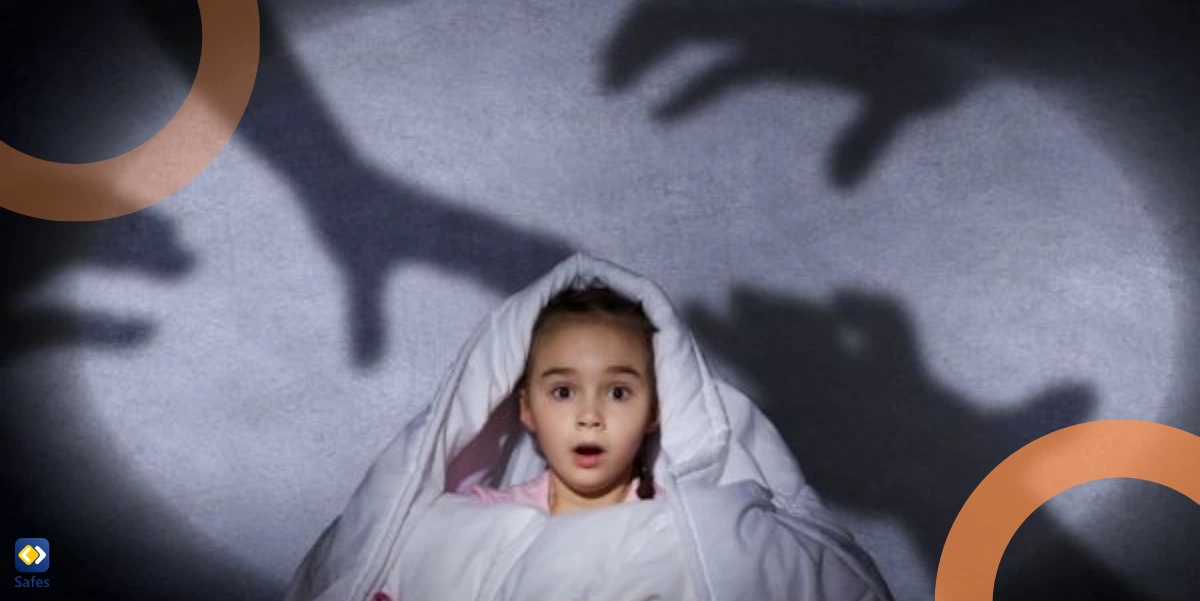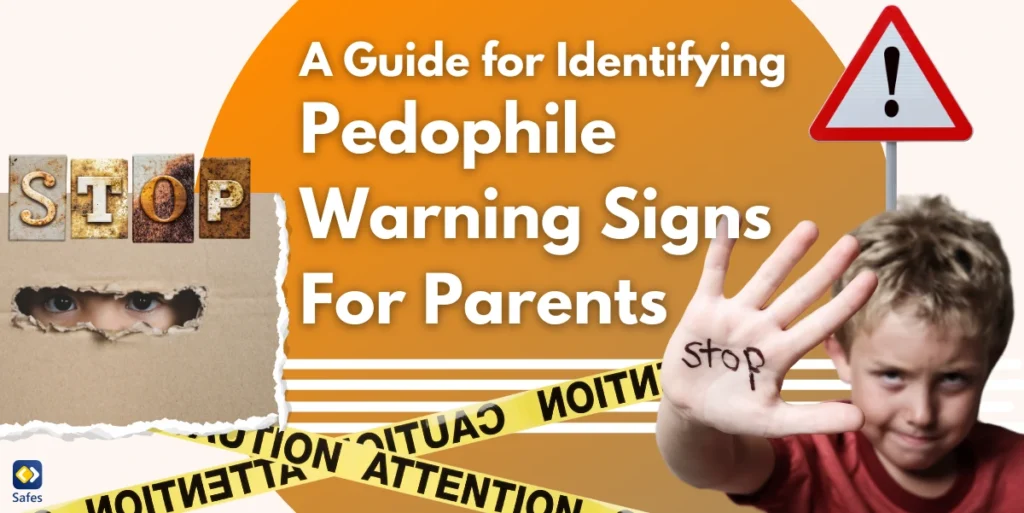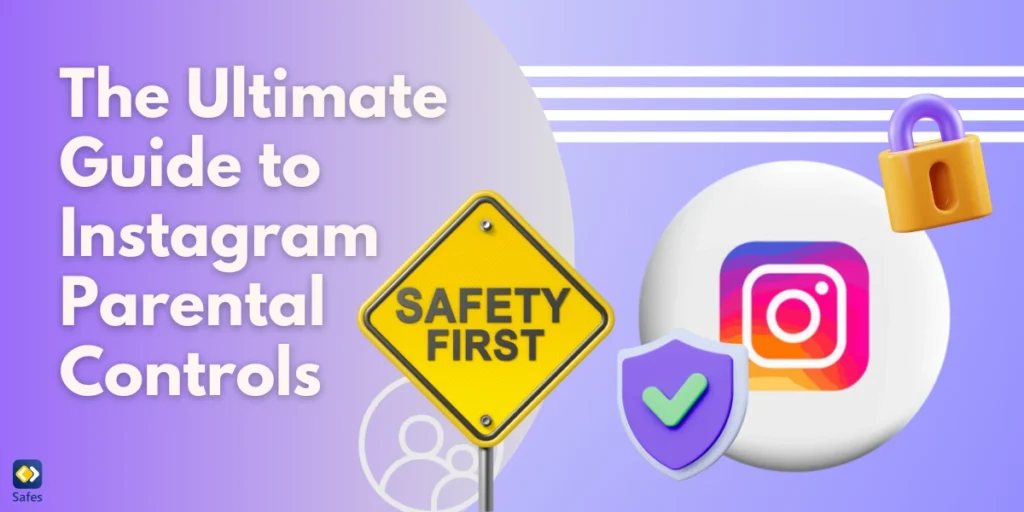In a world where the dangers of child exploitation and abuse seem to be increasing, parents need to stay vigilant. One of the most alarming threats to your child’s safety comes from pedophiles, those who are sexually attracted to children. The worst part is that pedophiles can be anyone. They may appear trustworthy, friendly, and approachable, making it difficult for parents to recognize the warning signs. In this guide, we will explore pedophile warning signs, their methods, and, most importantly, how you can protect your child from falling victim.
Download and Start Your Free Trial of the Safes Parental Control App
4 Warning Signs of a Pedophile to Watch Out for
Recognizing the early signs of a predator and pedophile can be incredibly difficult, but there are some red flags that parents should keep an eye out for:
1. Excessive Attention Toward Your Child
While it’s natural for adults to show affection or interest in children, pedophiles often take it a step too far. They may seek out opportunities to be alone with your child or initiate overly personal conversations with them. If an adult seems to give your child more attention than they would other kids, or if they go out of their way to create private moments, this could be a warning sign.
2. Inappropriate or Overly Physical Behavior
Pedophiles often try to normalize physical touch and inappropriate behavior as another sign of sexual abuse in children. This can be touching in a way that makes your child uncomfortable, such as hugging or patting them in a manner that feels too intimate. Be wary of adults who frequently hug, touch, or stroke your child without considering the context or situation.
3. Isolation of the Child
A common tactic used by pedophiles is isolating a child from their family and friends. This could be done by giving your child gifts or special treatment to make them feel like they have a special bond. They may also try to create situations where the child feels comfortable being alone with them, away from the protective presence of a parent or other trusted adults.
4. An Overactive Interest in Your Child’s Personal Life
It’s normal for adults to have casual conversations with children; that said, a pedophile may want to know very specific, personal details about your child’s life. They might ask about your child’s schedule, where they go to school, who their friends are, or even inquire about your home situation. An adult who expresses excessive curiosity about your child’s personal life may not have good intentions.

Can We Recognize People with Pedophile Disorders?
Studies have been trying to find out a difference in people with sexual attraction to children. Recent studies have targeted specific subgroups of sexual offenders, such as those who offend against children versus those who offend against adults. The goal is to better understand the differences in their neuropsychological functioning.
This study compared individuals who sexually abused children, adults, and a group of normed data (healthy individuals). It found that both groups of abusers (those who sexually abused children and adults) performed similarly and normally on tests related to cognitive flexibility, decision-making (set shifting), and visual-spatial integration.
Both groups of abusers showed:
- Deficits in verbal fluency (the ability to quickly produce words)
- Verbal learning (remembering and recalling words).
Interestingly, those who engaged in child sexual abuse showed more issues with “response inhibition” (the ability to stop or control actions) compared to the other group. This issue with response inhibition is linked to impulsivity. They found that these individuals had more difficulties with response inhibition and behavioral impulsivity when exposed to sexually relevant cues, meaning they had trouble controlling impulsive reactions when faced with sexual stimuli.
What Are 4 Common Pedophile Grooming Methods?
Pedophiles usually don’t act immediately on their impulses. Instead, they engage in a process called grooming, which is a gradual manipulation of the child and their family. Grooming allows the predator to gain the child’s trust and isolate them from potential interference.
1. Building Trust and Favoritism
A pedophile will often try to gain the trust of both the child and the parents. They may offer gifts, special attention, or praise to the child to make them feel important or loved. This creates a bond that the predator can exploit later. The goal is to make the child feel like they have a special, unique relationship with the adult.
2. Desensitizing the Child to Inappropriate Behavior
One of the most common tactics used by predators is to desensitize the child to inappropriate behavior over time. They might start with light physical contact, like brushing the child’s hair or giving them a high-five, and gradually increase the level of intimacy. This subtle progression can often go unnoticed by both the child and the parents, allowing the predator to go further without alarming anyone.
3. Gaining Access and Privacy
Pedophiles are known to create situations where they can spend time alone with the child. This could be through offering rides, arranging sleepovers, or even volunteering to take care of the child during a parent’s absence. The more private moments the predator can share with the child, the easier it is to manipulate them.
4. Exploiting Vulnerabilities
Predators often look for children who may have emotional or psychological vulnerabilities, such as those dealing with divorce, bullying, or low self-esteem. They prey on these vulnerabilities by offering the child attention, validation, and understanding that they may not be getting elsewhere. This makes the child more dependent on the adult and easier to manipulate.

How to Protect My Child Against a Pedophile?
Now that you know the signs and the methods pedophiles use, it’s time to learn how to protect your children against them: prevention. Here are some steps every parent should take.
Teach Your Child About Boundaries
One of the most important things you can do as a parent is teaching your child about healthy boundaries and what kind of behavior is unacceptable. Teach them that they have the right to say no to any touch or attention that makes them uncomfortable. Ensure that they understand that they should always come to you if someone does something that feels wrong.
Monitor Your Child’s Interactions
Always be aware of who your child is interacting with, both in person and online. Know their friends, teachers, and other adults in their lives and watch out for any changes in your child’s behavior or emotional state. Predators know how to manipulate your child through online grooming. Therefore, it’s important to monitor the apps and websites your child visits and who they communicate with.
Use Parental Control Apps
In this digital world, predators can use the internet to target children. To keep your child safe online, you can use parental control apps that allow you to monitor their online activity. We’re proud to introduce our parental control app, Safes, which is designed to make the online world a safer place for children. Using Safes, you can easily track what your child is doing on their phone or computer, block inappropriate content, and set screen time limits.
Final Word
As a parent, staying informed and vigilant in protecting your child from predators is more important than ever. Now that you know pedophile grooming methods and warning signs, you can take the necessary steps to prevent harm. Remember that open communication with your child and using tools like Safes can be critical in ensuring their safety.
Safes offers more comprehensive features than its alternatives, such as parental controls on Android, giving you peace of mind of knowing all your child’s online activities. Download Safes today for Android and iOS to stay one step ahead and help keep your child safe from online and offline threats. You can also use our free trial and test the features in advance!
Your Child’s Online Safety Starts Here
Every parent today needs a solution to manage screen time and keep their child safe online.
Without the right tools, digital risks and excessive screen time can impact children's well-being. Safes helps parents set healthy boundaries, monitor activity, and protect kids from online dangers—all with an easy-to-use app.
Take control of your child’s digital world. Learn more about Safes or download the app to start your free trial today!




